Director: John Woo
Producer: Tsui Hark
Cast: Chow Yun-Fat, Ti Lung, Leslie Cheung, Dean Shek, Emily Chu, Kenneth Tsang, Regina Kent, Kwan San, Chindy Lau, Dean Harrington, Mark King
Running Time: 103 min.
By Joseph Kuby
Awesomely Ace Addition!
A lot of people hate this movie, like as if Wong Jing had bought the rights to the series and messed things up. To be honest, I think the problems that lie in the film don’t result from the actual quality of the film but from the way it was edited. When you cut any film, there’s bound to be pivotal things missing but when you have a film where not one editor has any idea what the other is doing then the situation ends up looking like a bunch of screenwriters writing sections of a film without any one’s knowledge or consent (likewise if the same thing happened with a team of directors).
This film was originally over three hours in length and the studio balked at Woo for its length. The film was then cut down to two hours and forty minutes so John Woo & Tsui Hark (the producer) had to cut the film separately under a very limited period of time due to pressure from the studio and distributors to trim the film down to get more screenings in cinemas. Therefore, the film had suffered terribly causing Woo to disown it.
The problem is that Woo was given a very short time to edit the film and to make matters worse both Woo & producer Tsui Hark had clashed as to how the film should be made so with Tsui being the producer, he had equal control with the editing of this film along with three others (Woo being the fifth editor). Woo didn’t even know who was editing what. Needless to say, the editing makes the film incoherent, incomprehensible, inconsistent, inane and insane (not to mention irresolute); which is really a shame as if it was left uncut, it could have been a classic.
At best, the recent/regular version is a cult classic but even in its hideously disfigured form, the film still has shades of bravado even if those shades are merely shadows of its former brilliant self.
The second time I saw this film, I compiled a list of scenes that were cut (i.e. scenes that looked like they were abridged…even frames of a single shot) and it’s really obvious that a lot of scenes were cut.
The catchy music cues from 52 Pick-Up are inspired and really help to elevate the excitement and adrenaline rush (particularly during a prolonged shootout/car chase in the streets of daytime New York).
Besides having one of the most bloodiest shootouts ever shot on film, it also has one of the best set-ups/double crosses I’ve ever witnessed on celluloid.
It helps that Chow Yun Fat’s usage of a shotgun rivals that of any film (minus Woo’s others) featuring the handling of a similar weapon, whether it be Bronson’s in Mr. Majestic or Arnie’s in Terminator 2, but with Woo as the director even Sam Peckinpah’s work comes off as overrated.
People usually ignore or don’t realize the themes which are at work here; besides the usual symbolism and metaphors, the film develops John Woo’s themes of religion with Chow’s character being resurrected in the form of a twin brother called Ken (think of Jesus Christ resurrecting before going back into heaven and you’ll see amazing parallels with Ken – especially given one of the final lines of dialogue that’s uttered in the film “We are dying. Can we leave?”).
Another thing which is overlooked in the sequel is John Woo’s insidious sense of humour (he used to make comedies before going into action movies), especially here in the form of self-deprecating humour (which can also be found in his film Just Heroes which makes references to this film) thus making A Better Tomorrow 2 a semi-parody of the first film.
Also the sequel shows Woo’s ingenious strokes of irony: Dean Shek’s character Lung is a godfather to Ken – making Ken a younger disciple/underling but when the former becomes shell-shocked, the latter ends up being the father to the childish former. However, it’s when Ken is in peril that Lung jumps back into reality to take on the foes who have threatened his life and one of his “sons”.
Both John Woo’s sense of irony (usually with his trademark juxtaposition sequences) and religion is pushed to the fore as we see the death scene of Leslie Cheung played out alongside the birth of his son thus making way to the Buddhist belief of being reincarnated. Henceforth John Woo contrasts two different ideologies of what happens after when you die.
The addition of comedy was a welcome touch to this film and just seeing Chow (whose character should have been called Ben or even Kenny* to reduce the confusion with another character called Ken), Leslie, Ti, Kenneth Tsang and Dean Shek side by side in the same scene (and shot) really gave it that special event feeling and thus increasing the momentum & fun factor of the story – leading to the build-up of a horrific yet kind of hilarious showdown.
Considering the usage of irony in this film, it’s ironic that Ng Man Tat gives a villainous performance which barely foreshadows his comic genius in his Stephen Chow outings (his comedic sidekick had appeared in Woo’s Just Heroes).
A Better Tomorrow 2 is like Kill Bill in a way in that, besides the gory showdown (which inspired Tarantino for part one of Kill Bill), there are many references to other films – some more subtle than others. The killer with the white gloves is a nice throw-back to Le Samourai, whilst also a foreshadowing to The Killer (a Chinese remake of Le Samourai). The “black suits with skinny ties” look that the heroes adopt near the end was inspired by Le Samourai.
The scene where Leslie faces off against the hitman (with intercutting shots of his pregnant wife in hospital giving birth) was no doubt taken from the Spaghetti western, Keoma. The shot where Lung is sprayed in the face with a hose by a little girl is inspired by one of the first short films ever created, the Lumiere brothers’ Watering the Gardener (a.k.a. The Sprinkler Spinkled).
The shootout in the apartment was inspired by two Paul Schrader-scripted movies: Taxi Driver and Rolling Thunder (two movies adored by Quentin – which could explain why he likes A Better Tomorrow 2 so much to the point of influence).
The very structural concept of the action sequence (environmentally as well as cinematographically) is similar to the finale of Taxi Driver but Woo has said to have been even more inspired by Rolling Thunder with Chow sporting a shotgun ala Tommy Lee Jones (Chow is even similarly dressed as Tommy) but even with the concept of two psychologically worn-out characters (one physically able than the other) taking on an overwhelming amount of thugs as they descend a building.
A Better Tomorrow 2 not only inspired the dual gun action and looks of the Reservoir Dogs characters (although the look initially came from Le Samourai), but even the crazy dialogues which Tarantino is infamous for as seen & noted in the rice scene where Chow force-feeds an Italian New York-based mafioso to devour rice (the humourous black cop was a wonderful addition as well as Chow’s comic touches – which is saying something as I was really just expecting it to be more of a serious scene with brief touches of darker than dark/blacker than bleak humour). I think even the ending influenced Tarantino’s for his directorial debut although the ending for Ringo Lam’s City On Fire (the main inspiration for Reservoir Dogs) equally holds that honour as well!
This is just proof that Woo is capable of inspiring people through words besides actions. Though speaking of actions, not only did Woo inspire himself for the sliding-down-a-staircase-with-dual guns for his action masterpiece Hard Boiled but even Keenen Ivory Wayans decided to follow suit for his film A Low Down Dirty Shame.
Is this film action-packed? Well, the film is certainly not action-lacked as there’s thirteen action sequences as opposed to the five in A Better Tomorrow, so the action-packed pace of the sequel should appeal more to action movie fans than the first one.
Fun, funny, frenetic, fast-paced, feverish, fervent and utterly & ultimately furious……what more could you possibly want?! Overall a great follow-up to a classic film!
Just one more thing, it’s funny how people refer to the finale as running for twenty minutes because, after calculating the length (starting with the funeral, which in itself is like the introduction to the finale), it’s only twelve minutes long.
* Like his South Park counterpart, Chow’s resurrection from death but to succumb to death is gratuitous but funny. In all due fairness, I think the character of Ken was Woo’s way of saying that Mark had been resurrected (metaphorically speaking) because of his selfless heroism in the first movie. So even if the coherency isn’t as consistent, certainly Woo’s Catholicism is.
Joseph Kuby’s Rating: 9/10
By Numskull
Holy crap, did this series go downhill in a hurry. I suppose it’s comforting, in an odd sort of way, to know that Hollywood isn’t the only film industry that shamelessly milks its cash cows. A Better Tomorrow 2, while not a thoroughly crappy film in and of itself, is a pretty crappy sequel (to a movie that should never have had a sequel to begin with).
The original cast is reunited, with Chow Yun-fat playing the twin brother of his previous character, who got perforated at the end of the first film. Pretty lame way to bring an actor back for round two, but it could have been worse…they could have said that he was critically injured but not killed (“Yes, all 57 bullets missed Mark’s major organs”), that he was only killed in a dream or hallucination of some kind (“Yes, both of you were unwittingly inhaling turpentine fumes during that shootout and Mark actually made his getaway on the boat as planned”), or that he was brought back from the dead somehow (“Yes, Mark is, in fact, Jesus Christ reincarnated…surely you didn’t think he was merely speaking figuratively when he said ‘I’m the God’?”).
The stupidity doesn’t stop there. This time, Chow Yun-fat’s character is named Ken.
“Wait a minute, Numskull…wasn’t Ken the name of the guy who ran the taxi service in the first movie?”
Right you are! And that character is back this time ’round, as well. So what do they do to avoid confusion? They simply refrain from having anyone call the cab guy by name. You see, they just HAD to have two characters named Ken. Who are you to question why?
There’s a new face in the crowd here, Dean Shek, and his character is so pathetic you’ll want to thrust your hand through the TV screen and bitch-slap him on more than one occasion. He loses it when he sees a buddy get popped and spends 45 minutes or so acting like a brain-dead mental patient who has just consumed a prodigious quantity of jewelry polish. If John Woo intended us to feel sorry for him, he failed.
Plenty more stupidity to discuss before all is said and done. Most noticeable among the plot holes is Chow Yun-fat informing Dean Shek that “Peggy is dead.” Those with a keen eye for continuity will note that CYF’s character never witnesses Peggy’s death, nor is he informed of it by anyone else. But somehow, he just knows. Go figure.
In another scene, Ti Lung has to plug Leslie Cheung not once but TWICE (!!!) in order to keep his cover. Now, see, here’s the thing that bugs me…if you’ve got this guy who you know is a cop, and you’re a gangster with about 30 heavily armed henchman, and you have one of them shoot the cop a couple of times, don’t you think you should…oh, I don’t know…MAKE SURE HE’S DEAD before you drive away?!? Not these guys…they don’t check for a pulse or anything of the sort. Bang, bang, and then they pile into their cars and take off. Whataloadacrap.
The first scene in the Four Seas Restaurant is one of the stupidest things I’ve ever seen. Some fuckwad white guy loudly announces that he’s going to blow the place up because their fuckin’ food stinks. Bravo. Ken then makes him apologize to the rice. In the Cantonese DVD track, this scene has English dialogue. This part of the movie is so fucking lame, I can actually picture some red-hot chick with a scorching case of nymphomania bursting into the viewer’s room, absolutely determined to have sex with him despite not knowing him, then seeing what a fucking stupid scene he’s watching in this weird Chinese movie, and having second thoughts about the whole thing and going elsewhere in search of a frozen hot dog or something like that, all because this scene is so painfully, miserably, abominably sucky.
Most of the movie’s flaws are in the first two-thirds, and after Dean Shek’s character gets his shit together, the film partially redeems itself. The scene where Tse Kit calls his wife in the hospital is probably the best dramatic scene (most of the others being too limp to elicit any noteworthy emotional response from the audience), and the climactic action sequence is a pretty good one, although it requires a sizable suspension of disbelief (the good guys each get shot like seven times, and all it seems to do is stain their clothes red and make them a little sleepy).
Sorry Mr. Woo, but this movie was a waste of talent, both yours and those of the cast. Anyone who saw the first A Better Tomorrow and loved it, don’t think for a minute that you are somehow obligated to watch the sequel too. Its rightful place is in the shadow of its predecessor.
Numskull’s Rating: 5/10
By Alexander
Thank goodness I watched “Hardboiled” and “A Bullet in the Head” before picking up the absurdly over-the-top “A Better Tomorrow 2.” While each of those Woo/Yun-Fat classics are fairly evenly paced and reward the viewer with frequent scenes of mayhem, “ABT 2” weakly lurches forward to a barely satisfying grenade-tossing, blood-soaked finale. (I’m convinced the chapter search function on DVD players was invented solely for this film.)
The most distracting thing about this film isn’t the ridiculous plot, but rather how dated it looks. The Flock of Seagull haircuts, bandanas, and tight-ass George Michaelesque jeans all scream 1980s. Part of the appeal of “The Killer,” “Hardboiled,” and even “ABT” is their timelessness. With a few exceptions, these films — and other greats like a “A Hero Never Dies” and anything by Wong Kar Wai — don’t FEEL like they belong to any one decade and hold up well to repeated viewings.
Alexander’s Rating: 6/10
By Yates
This film is really great in some aspects and really bad in others. It is great in that it has amazing action and a couple of really great scenes (the rice scene, the final 20 minutes). Of course, as anyone who has seen it knows, it had nothing on ABT. The script is filled with laughable contrivances and numerous plot holes (most likely due to John Woo and Tsui Hark’s arguments over the editing), the middle part where Dean Shek goes insane is a bit tedious, and for the love of Christ: Ken??!??!? I mean, come on! A superior heroic bloodshed, but not a superior entry in the ABT trilogy.
Yates’ Rating: 8.5/10
By James H.
“A Better Tomorrow II” is a sequel in the true Hollywood sense. Its purpose is to cash in on the success of its predecessor. Made only one year after the groundbreaking, and record-breaking original, it reunites the cast, even though Chow Yun-Fat’s character died in the first. However, ABT 2 doesn’t fall flat like several sequels do. Woo takes what he learned from the first film and builds on that framework. The action is bigger, better and slicker. Gun shots a louder, shotgun wounds are bloodier, the body count is higher. Although this may seem all well and good, the story suffers from it. I’m sure you all know by now that Chow Yun-Fat plays the twin brother of his character from the original film. And now Chow is the centre of attention, whereas in the first film, he was a secondary character.
This movie is not about story though. It is about the action. The action in this film is mind-blowing, although not as good as Woo’s later works like “The Killer” and “Hard-Boiled”. There are a few scenes that are indeed worthy of high praise. However, with the bigger action comes the ridiculousness. The climax of the film is so full of excess it becomes preposterous, and one cannot help but snicker. Yes, it is a good movie. It is good, violent, fun. And yes, it does how Chow Yun-Fat. But it does not live up to other works by Woo.
James H’s Rating: 7.5/10

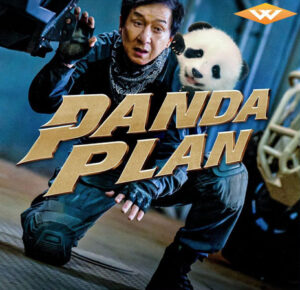
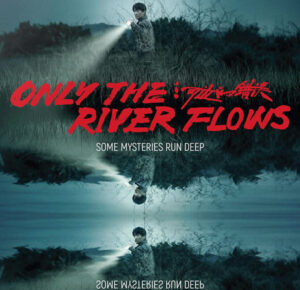
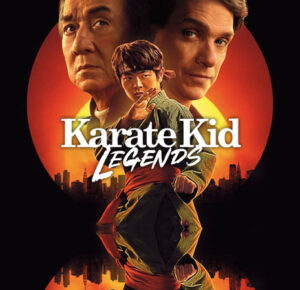









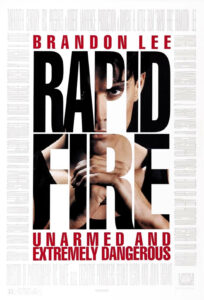


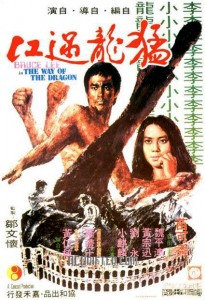


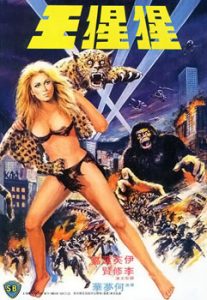



Be the 1st to Comment